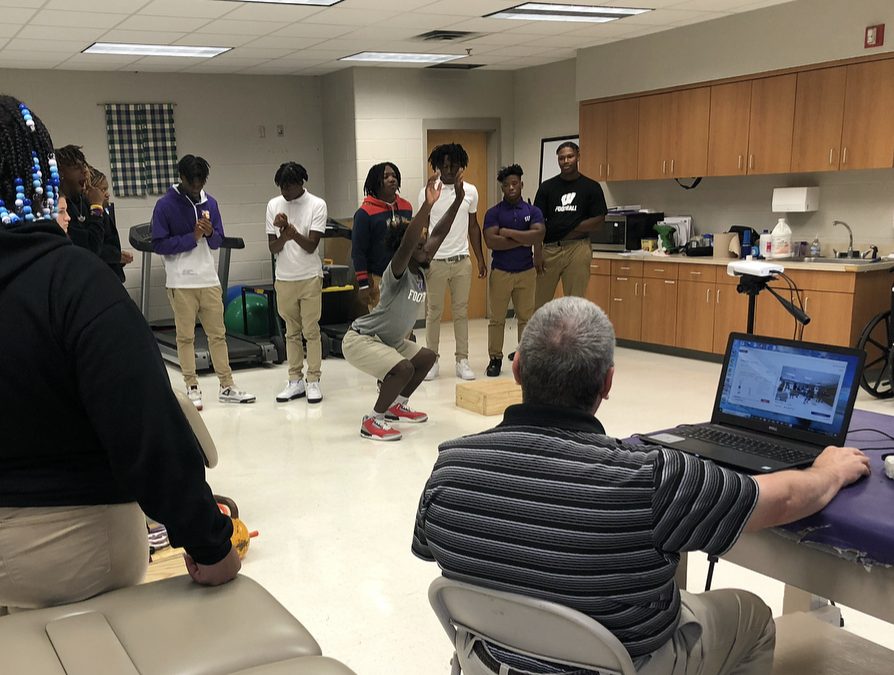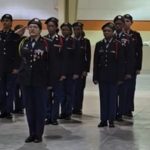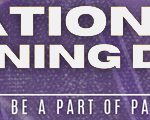Woodlawn High School’s Athletic Training program is the first school in Louisiana to partner with Kinotek and have access to the company’s new software and equipment designed to help prevent repetitive injuries to student-athletes.
Randy Gonzales, the school’s certified athletic trainer, and his team of student aides have started beta-testing the latest 3D Motion Analysis technology, which they expect to allow for more efficient identification of areas of potential concern before more serious problems arise.
“It’s a great benefit not only to the athlete and to our program, but it’s also a great benefit to my students,” Gonzales said. “They’ll be able to look at and analyze the data and really see what we do on a daily basis, and they’re going to get some new real-world, practical application to what athletic training is.”
The software and camera help gather information and three-dimensional images displaying the athletes’ ranges of functional movement.
And the technology allows the trainers to gather and store these findings in a drastically less tedious and more efficient manner than the traditional use of a hand-held goniometer.
“That will allow us to gather a lot of data on a lot of athletes really quickly,” Gonzales explained. “We can do probably six tests on an athlete in about a minute and a half.
“The benefit of this is that we can get a baseline of their range of motion. If there isn’t a symmetry there between limbs, then we can address that in the weight room through the offseason program. And then if there’s an injury, we can address it and monitor it as they come back and know where their full range of motion is.”
Kinotek, founded in 2018, has positioned itself at the “intersection between sports and health,” according to co-founder Justin Hafner.
The Maine-based company, with six-figure support from Microsoft, has partnered with not only athletic trainers, strength and conditioning programs and personal trainers, but also physical therapists and chiropractors.
“In athletics—or really the movement market as a whole—there’s a lack of confidence in objective data on your range of motion,” Hafner told Sports Techie in a previous interview. “We provide the objectivity and confidence in understanding why or what this data can do, the value in it.
“We’re solving the educational and communication gap between the patient or athlete and the clinician and the athletic trainer. So, it overall improves the quality of care between the provider and patient.”
And Woodlawn High is now the first of its peers to be able to offer that opportunity to both its athletes and its student trainers.
Said Gonzales: “With this software and the different tests that they have set up, we get very real 3D images and movement that will allow us to detect the symmetries and make us a step above.”












